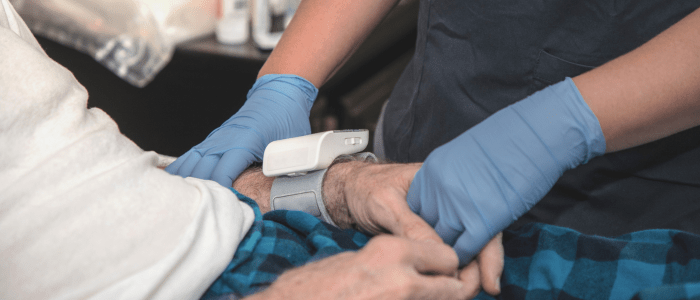NICE conditionally approves wearable devices for remote Parkinson’s disease monitoring

The National Institute for Health and Care Excellence (NICE) has conditionally approved five wearable devices for remote monitoring of Parkinson’s disease, enabling the collection of real-world data (RWD) by the NHS.
Parkinson’s disease (PD) is a chronic degenerative disorder that affects the central nervous system, leading to the progressive deterioration of coordination and movement. It is estimated that around 135,000 people in Britain and 10 million worldwide suffer from PD.
The most recent guidance from the UK health technology assessment (HTA) organization has updated its preliminary endorsement, published in 2022, for five devices designed to monitor individuals with PD. These devices could facilitate remote assessment and improve symptom management. The guidance emphasizes that the NHS can utilize these devices while awaiting additional evidence regarding their benefits.
The five wearable devices conditionally recommended by NICE for remote Parkinson’s monitoring are Great Lakes NeuroTechnologies’ Kinesia 360 and KinesiaU, PD Neurotechnology’s PDMonitor, PKG Health’s Personal KinetiGraph (PKG) and Sense4Care’s STAT-ON. These sensor-based devices capture movement data, including gait, involuntary movements, and posture. Some also feature customizable diaries for medications, diet, and exercise, with reminders and patient acknowledgments for medication adherence. This not only improves accuracy compared to traditional in-person assessments, but also provides a comprehensive record of symptoms, enhancing the effectiveness of remote monitoring.
These devices are conditionally recommended pending further evidence on resource impact, symptom improvement, usage frequency, and cost management. Commissioners are advised to explore payment options, such as pay-per-use, subscription, or considering potential discontinuation if cost-effectiveness lacks support. Clinicians assessing device features for suitability in varied conditions, may find early access beneficial for symptom management. However, comprehensive data collection remains crucial for a thorough assessment of their impact.
“Sometimes people with Parkinson’s disease may struggle to accurately assess their symptoms, and how severe they think they are may differ from the view of their carer,” the guidance notes. “More objective monitoring of symptoms is therefore an unmet need.”
NICE urges the NHS to collect data on device usage frequency, impact on symptoms and quality of life, and effects on NHS resources. The evidence on the devices’ impact on quality of life and NHS resource savings is currently lacking and varies among devices, with no comparisons between them. PKG has the most evidence, but its effectiveness in NHS settings remains uncertain due to trial disparities. Early conditional access to these technologies could enhance symptom management and quality of life, emphasizing the need for comprehensive data collection to assess their clinical and cost effectiveness.
Want regular updates on the latest real-world evidence news straight to your inbox? Become a member on The Evidence Base® today>>>






